- Home
- Tim Lebbon
Dusk: a dark fantasy novel (A Noreela novel)
Dusk: a dark fantasy novel (A Noreela novel) Read online
Praise for Dusk
Winner of the August Derleth Fantasy Award for Best Novel, 2007
“An exquisitely written, unique world is revealed in this novel, a world inhabited by flesh and blood people rendered with often brutal honesty and clarity of vision. It’s rare indeed to witness the conventions of fantasy so thoroughly grabbed by the throat and shaken awake the way Tim Lebbon has done with Dusk. Even more enticing, this first novel in the series concludes with a jaw-dropping finale, and for what it’s worth, such a reaction from me is not a common occurrence.” – Steven Erikson, author of The Malazan Book of the Fallen series
“Lebbon has a way of throwing staggering images at you which you almost have to pause and think about before you can fully grasp. This is fantasy for grown-ups - and the ending made my jaw drop. This is an excellent book.” – Paul Kearney, author of The Mark of Ran
“Dusk is a deliciously dark and daring fantasy novel, proof of a startling imagination at work. Lebbon's writing is a twisted spiral of cunning, compassion, and cruelty.” - Christopher Golden, author of The Veil
“Dusk is dark, twisted and visceral, with a very shocking sting in the tail - the perfect jolt for anyone jaded by the creaking shelves of cuddly, rent-an-elf fantasy. Tim Lebbon is an important new voice in the fantasy field. Bring on the night!” – Mark Chadbourn, author of The Age of Misrule and The Dark Age
“Tim Lebbon is a master of fantasy and horror, and his visions make for disturbing and compelling reading.” – Douglas Clegg, author of The Priest of Blood
“A gripping and visceral dark fantasy of five fugitives in flight from terrifying pursuers through a decaying world brutalized by the Cataclysmic War. In Dusk, Tim Lebbon has etched a powerful new version/telling of the traditional magical quest, whose tortured twists and turns will (alternately) disturb and electrify its readers.” – Sarah Ash, author of Prisoner of the Iron Tower
“Tim Lebbon writes with a pen dipped in the dark stuff of nightmare. The world he creates is eerie, brutal and complex, and the story abounds with action and menace.” – K.J. Bishop, the author of The Etched City
"A Riveting Work of Staggering Imagination." – F. Paul Wilson
Dusk
a noreela novel
Tim Lebbon
Copyright © 2017 by Tim Lebbon
Originally published by Bantam © 2006 by Tim Lebbon
All rights reserved.
No part of this book may be reproduced in any form or by any electronic or mechanical means, including information storage and retrieval systems, without written permission from the author, except for the use of brief quotations in a book review.
Created with Vellum
Contents
Foreword
I. First Signs of Night
Chapter 1
Chapter 2
Chapter 3
Chapter 4
Chapter 5
Chapter 6
Chapter 7
Chapter 8
Chapter 9
Chapter 10
Chapter 11
Chapter 12
Chapter 13
Chapter 14
Chapter 15
Chapter 16
Chapter 17
Chapter 18
II. Sunfall
Chapter 19
Chapter 20
Chapter 21
Chapter 22
Chapter 23
Chapter 24
Chapter 25
Chapter 26
Chapter 27
About the Author
Thanks for reading!
Foreword
I wrote Dusk more than ten years ago. After writing horror novels and shorts stories this was my first fantasy novel, but I think you’ll see my love of horror weaved throughout this novel, and etched into the pages. Just check out that first chapter!
The road to publication was rocky, with Bantam losing the editor who championed me there. Luckily I was taken on by the brilliant Anne Groell, and Dusk was the first of five fantasy novels I wrote for them, as well as four novels in the Hidden Cities series written with Christopher Golden.
Reaction to Dusk was staggering. With great blurbs from such legendary fantasy writers as Steven Erikson, K. J. Bishop, Sarah Ash and Paul Kearney, fantastic reviews, and then winning the British Fantasy Award for Best Novel was the icing on the cake.
For this new edition published under my own Dreaming In Fire press, I’ve resisted the temptation to go in and edit or change anything. To do so to any great degree would be to make this a novel more of now than then, and I think it’s more interesting to republish as originally written.
I hope you enjoy it enough to move on to Dawn, due soon. Please let me know! After Dawn will come Fallen, then The Island, and then hopefully more novels from my backlist.
Enjoy the darkness.
Tim Lebbon
Goytre, August 2017
Part I
First Signs of Night
1
When Kosar saw the horseman, the world began to end again.
The horse walked towards the village, the rider shifting in fluid time to his mount’s steps. The man’s body was wrapped in a deep red cloak, pulled up so that it formed a hood over his head, shadowing his face. His hands rested on his thighs. The horse made its own way along the road. Loose reins hung either side of its head, its mane was clotted with dirt, its unshod hooves clacked and clicked puffs of dust from the dry trail. Only one man on a horse, and he did not appear to be armed.
How, then, could Kosar know that death followed him in?
With a grimace he stopped work and squatted. A warm breeze kissed the raw flesh of his fingertips—the marks of a thief—and took away the pain for a few precious moments. Blood had dripped and dried into a dust-caked mess across his hands and between his fingers, and they crackled when he flexed them. The unhealing wounds were a permanent reminder of the mistakes of his past.
Kosar decided that the irrigation trenches could wait a few minutes more. It had taken two years for the village to decide to commission them; another moment would make no difference to the crops withering and dying in the fields. Besides, they needed much more than water, though most would refuse to believe that was so. And now there was something more interesting to grab his attention, something that might bring excitement to this measly little collection of huts, hovels and run-down dwellings that dared call itself a village.
He stared along the road at the figure in the distance. Yes, only one man, but a threatening pall hung about him, like shadowy echoes of evil deeds. Kosar looked the other way, past the old stone bridge and into the village itself. There were children playing by the stream, diving and resurfacing in triumph if they caught a fish between their teeth. Elsewhere, drinkers sat silently stoned outside the tavern, mugs of rotwine festering half-finished in the sun, the other half coursing through veins and inducing a few cherished hours of catatonia. It was a false escape that he, Kosar the thief, would never be permitted again. At least not where any form of law still applied.
The market was small today, but a few traders plied their wares and squeezed tellan coins and barter from the village folk. Skinned furbats hung from hooks along one stall, their livers intact and ripe with rhellim, the drug of sexual abandonment. He had already seen three people skulking away, a furbat beneath their shirt and their eyes downcast. Their children may not eat tonight, but at least the parents would be assured of a good screw. Another trader sold charms supposedly from Kang Kang, banking on the fear and awe in which that place was held to make the buyers see past the trinkets’ obvious falseness. There were food sellers too, offering fruits from the Cantrass Pl
ains. But the journey from that place was long, the route difficult, and most of the fruits had lost their lively hue.
Kosar turned once again to the stranger. He was much closer now, and the sound of his progress had become audible in the heavy air. The figure raised its head almost imperceptibly. The cloak shifted to allow a sliver of the falling sun inside and Kosar squinted as he tried to make out what it revealed. His eyesight was not as good as it had once been, scorched by decades in the sun and weakened by lack of nourishment, but it had never misled him.
The stranger’s face was as red as his cloak.
Kosar stood and shielded his eyes. His first impulse was to grab the pick he’d been using, so he could swing it up in a killing arc if necessary. His second urge was to turn and run, and this surprised him. He’d always been a thief but never a coward. It was why he was still alive now, and it was the reason he could live among people, even with the terrible unhealing brands on his fingers.
He also listened to his hunches. Instinct was for survival, and Kosar followed his as much as possible.
But not this time. Instead, he crept back along the trench towards the bridge. Every step felt heavy, each movement against good sense. Something inside shouted at him to turn and run, abandon the village to whatever fate this red man brought with him. The place had never really done anything for Kosar. Acceptance it had given grudgingly, but never affection, never any true sense of belonging. They’d put up with him because he worked for them, nothing more. He’d spent the last mid-summer festival skulking past the stone bridge while the town cabal handed out ale and food. The revelry had jibed at him as he watched the setting sun alone, even though the jibing was mostly his own.
Turn and run.
But he could not.
Turn and run, Kosar, you bloody fool!
Even though instinct urged him to flee, and good sense told him that death’s shadow was already closing over the village, there were children here, playing in the stream. There were a few women in the village that he liked, or would like to like, given the chance. And more than anything Kosar was a good man. A thief, a criminal, branded forever as untrustworthy and devious, but a good man.
The horseman was no more than two minutes away from the village. Kosar had almost reached the end of the trench where it joined the stream, the bridge a hundred steps away. The children had finished their fishing and playing and climbed the bank, and now they sat on the bridge parapet, swinging their legs over the edge, laughing and joking and watching the stranger approach. Such trust, Kosar thought, in a world where hunger and fear makes trust so precious.
He was about to call out to the children when the horse broke into a gallop.
He could have warned them. He should have shouted at them to turn and run, go to their homes, tell their parents to lock their doors. Kosar had seen enough trouble in his life to recognise its flowering, and he had known from the instant he’d laid eyes on the horseman that he was not here for a drink, a meal, a bed for the night. He could have warned them, but shouting would have drawn attention to himself. And in this case, instinct won out.
The man in red dismounted on the bridge and approached the children. His horse remained where it had stopped, head bowed as if smelling the water through thick stone. The children stood, jumped around, giggled. Kosar glanced across into the village and saw several people looking his way, a couple of them striding quickly towards the bridge, one woman darting into the brothel where the three village militia spent most of their time.
For a moment all was still. Kosar paused, unmoving. The breeze died down as if the land itself was holding its breath. Even the stream seemed to slow.
The man in red spoke. His voice was water running uphill, birds falling into the sky, sand eroding into rock. Where is Rafe Baburn? he asked. The children glanced at one-another. One of the girls offered a nervous smile.
Later, Kosar would swear that the man never even gave them time to reply.
He grabbed the smiling girl by her long hair, pulled his hand from within the red robes and sliced her throat. His knife seemed to lengthen into a sword, as if gorging on the fresh blood smearing its blade, and he swung it through the air. Three other children clutched at fatal wounds, shrieking as they disappeared from Kosar’s view behind the parapet. The two remaining boys turned to run and the hooded man caught them, seemingly without moving. He beheaded them both with a flick of his wrist.
Kosar fell to his knees, the breath sucked from him, and rolled sideways into the irrigation ditch. He cringed at the splash, but the hooded man strode across the bridge and into the village without pause. Kosar peered above the edge of the trench and watched through brown reeds as the man approached the first building.
The village was in turmoil. A woman screamed when she saw the devastation on the bridge, and others soon took up her cry. Men emerged from doorways clutching crossbows and swords. Children ran along the street, their eyes widening with a terrible curiosity when they saw their dead friends. Goats and sheebok scampered through the dust, startled to the ends of their tethers, crying and choking as leather leads jerked them to a standstill. The man in red walked on, the robe still tight around his body, hood over his head. From this angle Kosar could only see his back, and for that he was glad. From the glimpse he had caught of the red face, he had no desire to see beneath that hood again.
A woman, mad with grief, tried to run past the man to hug her dead child. His arm snatched out and buried the sword in her stomach. He jerked it free without breaking his step, the woman’s blood splashing his robe. Her scream wound down like an echo in a cave. There was another shout from the village, and the whistle of a crossbow bolt boring the air.
It struck the man in the shoulder. He paused momentarily—
This is when he goes down, Kosar thought, and then they’ll fall on him and he’ll be torn to shreds.
—and then continued on his way. The bolt protruded from his shoulder, pinning the cloak tighter to his body. The shooter re-primed his crossbow, loaded another bolt and fired again, his eyes blinded with grief but his aim still true. This one struck the man in the face. Again he paused, his head snapping back with the impact. And again he went on his way once more. His pace increased, dust kicking up from beneath his red robe, clotted black with his own spilled blood.
Someone stumbled from the door of the brothel further along the street. It was one of the three militia, naked, flushed and erect from his regular afternoon dose of rhellim, yet still of sound enough mind to bring his longbow with him. A whore staggered out after him, frenzied from rhellim overdose, grabbing at the soldier’s crotch even as he strung an arrow and sighted on the red-robed man. He nudged the whore aside with his knee. She sprawled in the dust and shouted her rage up at him. The soldier let loose his arrow.
It thudded into the man and burst from his back. He stood for a moment like a red butterfly pinned to the air. The first man with the crossbow ran at him, raising his weapon to strike the murderer around the face, but the aggressor moved so quickly that Kosar barely saw the sword shimmer through the air. The crossbow spun across the road and into the stream, closely followed by its owner’s head, mouth still wide in a scream.
Another bolt struck home, fired from somewhere beyond Kosar’s field of view. Another, then another. The man barely paused this time, as if becoming used to the impact of wood and iron, his body adjusting itself around the alien objects puncturing and shredding it. He reached the tavern where the regular drinkers were stirring from thoughtless slumber and slaughtered all six of them. He did so slowly, seeming to relish every thrust and slice of his sword, oblivious to the bolts and arrows pounding into his red robed body.
The other two militia had emerged from the brothel and all three now stood in the street, ridiculously naked and sweat-soaked and hard on rhellim. The whores huddled back against the brothel wall and watched as their men plucked arrows from their quivers, strung, fired, strung and fired again. Each arrow found its mark, and the nearer the
man in red came to the militia the more damage they did.
One shaft struck his throat and exited the back of his neck, carrying a stringy mess of gristle and veins with it. The air was thick with blood. Kosar could not believe what he was seeing; the man should be dead. He was a walking cactus–there were two dozen arrows and bolts peppering his body, and more hitting home every few seconds–and yet he walked. He swung his sword, hacked at the villagers, and their bodies spilled blood into the dust. Kosar watched aghast as the man in red reached the militia. They stood their ground as they were trained, wide-eyed and terrified. They took up their swords, engaged the arrowed-peppered figure together and died together. One was split from throat to sternum by a twitch of the blade, another lost his rampant genitals before his guts followed them to the ground. The third, mad and brainwashed to the last, ran at the enemy with the intention of wrestling him into the dust. The robed figure spun at the last instant, and the soldier was impaled on his own arrows.
With the militia dead, the massacre of the villagers began in earnest.
The man in red still wore the hood over his face. His hands barely seemed to move before another body fell to the ground. And arrows and bolts still thrummed into him.

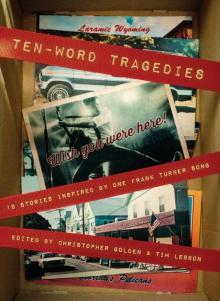 Ten-Word Tragedies
Ten-Word Tragedies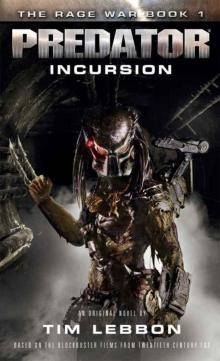 Predator: Incursion
Predator: Incursion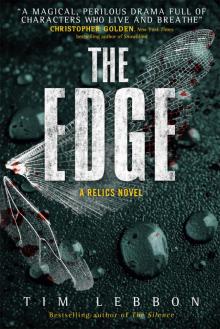 Relics--The Edge
Relics--The Edge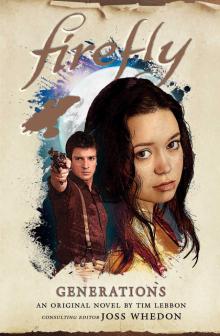 Firefly
Firefly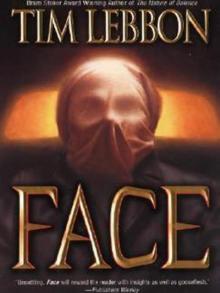 Face
Face Generations
Generations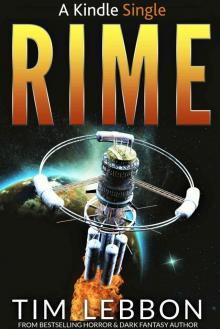 RIME (Kindle Single)
RIME (Kindle Single) Fallen
Fallen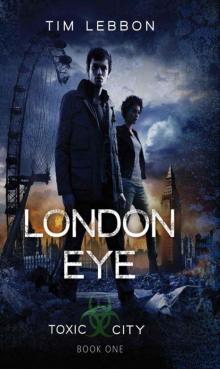 London Eye tc-1
London Eye tc-1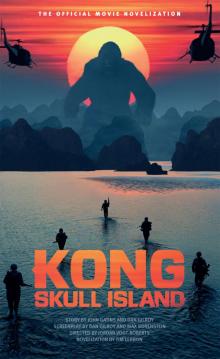 Kong: Skull Island
Kong: Skull Island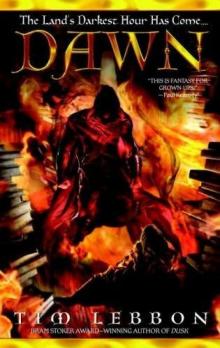 Dawn n-2
Dawn n-2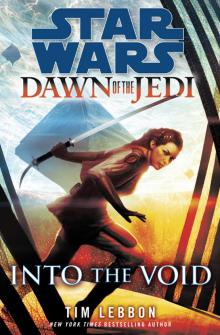 Into the Void: Star Wars (Dawn of the Jedi)
Into the Void: Star Wars (Dawn of the Jedi)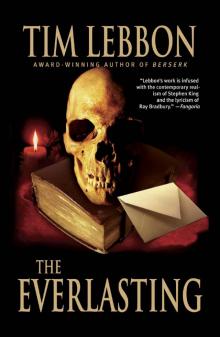 The Everlasting
The Everlasting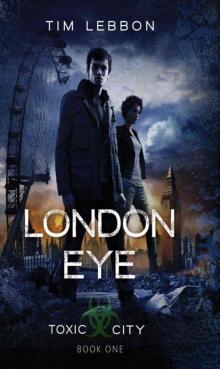 London Eye: 1 (Toxic City)
London Eye: 1 (Toxic City)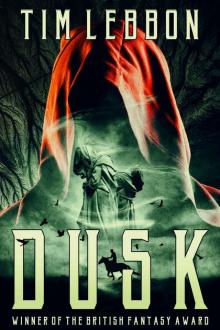 Dusk: a dark fantasy novel (A Noreela novel)
Dusk: a dark fantasy novel (A Noreela novel)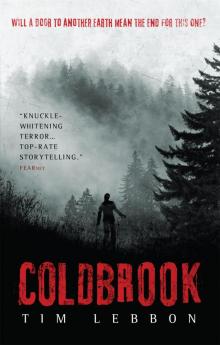 Coldbrook
Coldbrook Alien
Alien Dusk
Dusk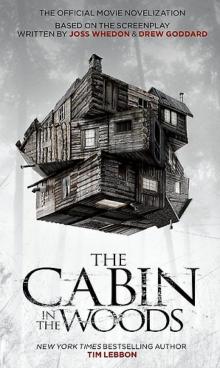 The Cabin in the Woods
The Cabin in the Woods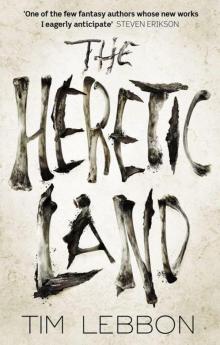 The Heretic Land
The Heretic Land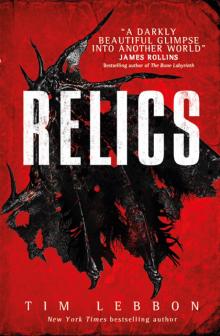 Relics
Relics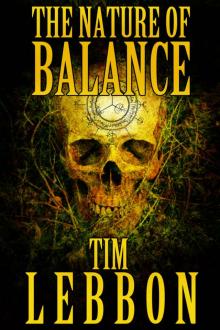 The Nature of Balance
The Nature of Balance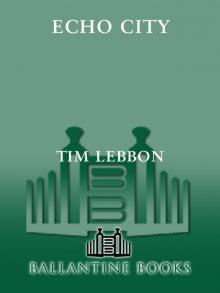 Echo City
Echo City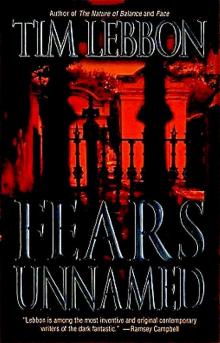 Tim Lebbon - Fears Unnamed
Tim Lebbon - Fears Unnamed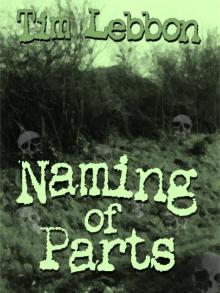 Naming of Parts
Naming of Parts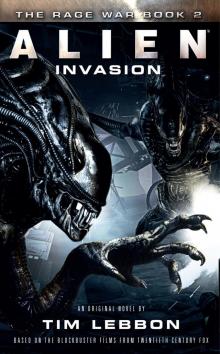 Alien--Invasion
Alien--Invasion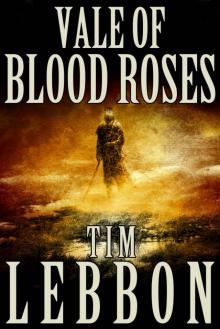 Vale of Blood Roses
Vale of Blood Roses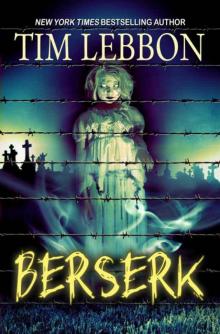 Berserk
Berserk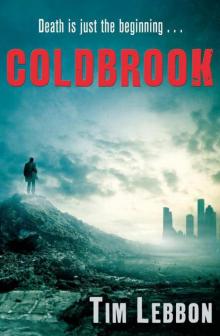 Coldbrook (Hammer)
Coldbrook (Hammer)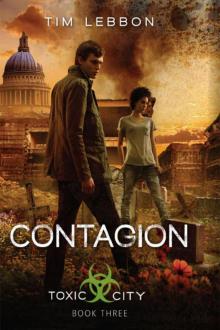 Contagion tc-3
Contagion tc-3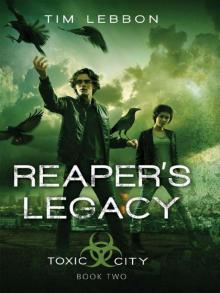 Reaper's Legacy: Book Two (Toxic City)
Reaper's Legacy: Book Two (Toxic City)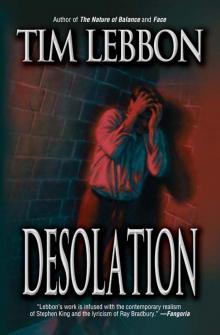 Desolation
Desolation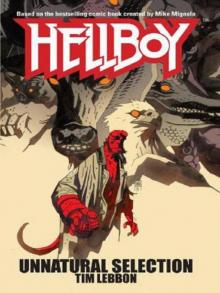 Unnatural Selection
Unnatural Selection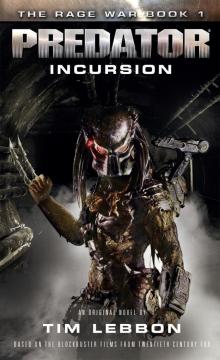 Predator - Incursion
Predator - Incursion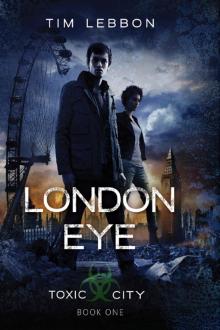 London Eye
London Eye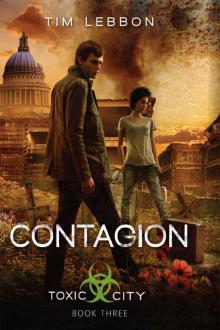 Contagion (Toxic City Book Three)
Contagion (Toxic City Book Three) The Silence
The Silence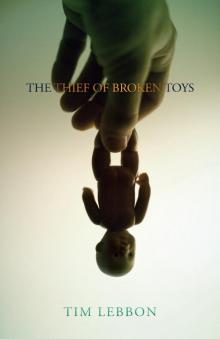 The Thief of Broken Toys
The Thief of Broken Toys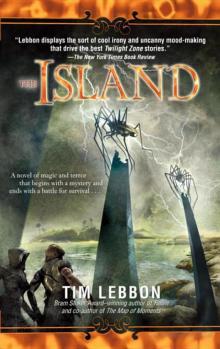 Tales of Noreela 04: The Island
Tales of Noreela 04: The Island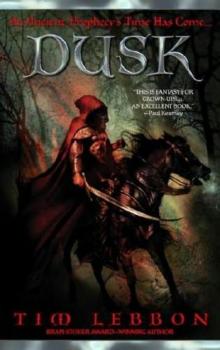 Dusk n-1
Dusk n-1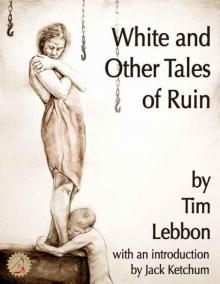 White and Other Tales of Ruin
White and Other Tales of Ruin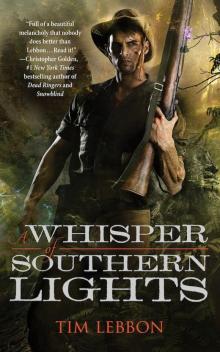 A Whisper of Southern Lights
A Whisper of Southern Lights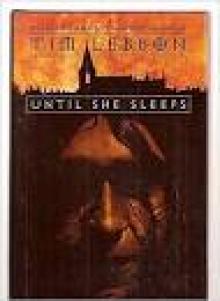 Until She Sleeps
Until She Sleeps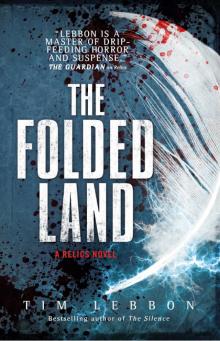 Relics--The Folded Land
Relics--The Folded Land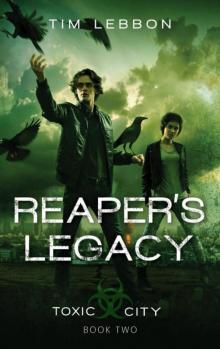 Reaper's Legacy tc-2
Reaper's Legacy tc-2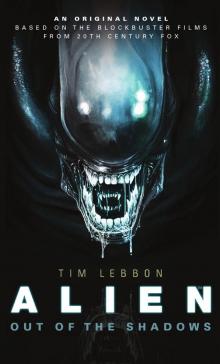 Alien: Out of the Shadows
Alien: Out of the Shadows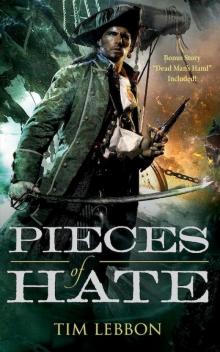 Pieces of Hate
Pieces of Hate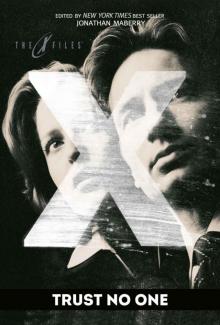 X-Files: Trust No One
X-Files: Trust No One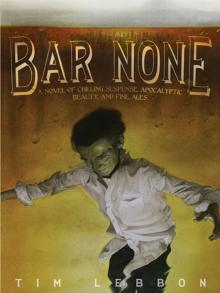 Bar None
Bar None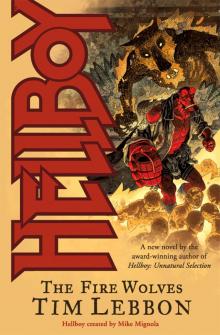 The Fire Wolves
The Fire Wolves